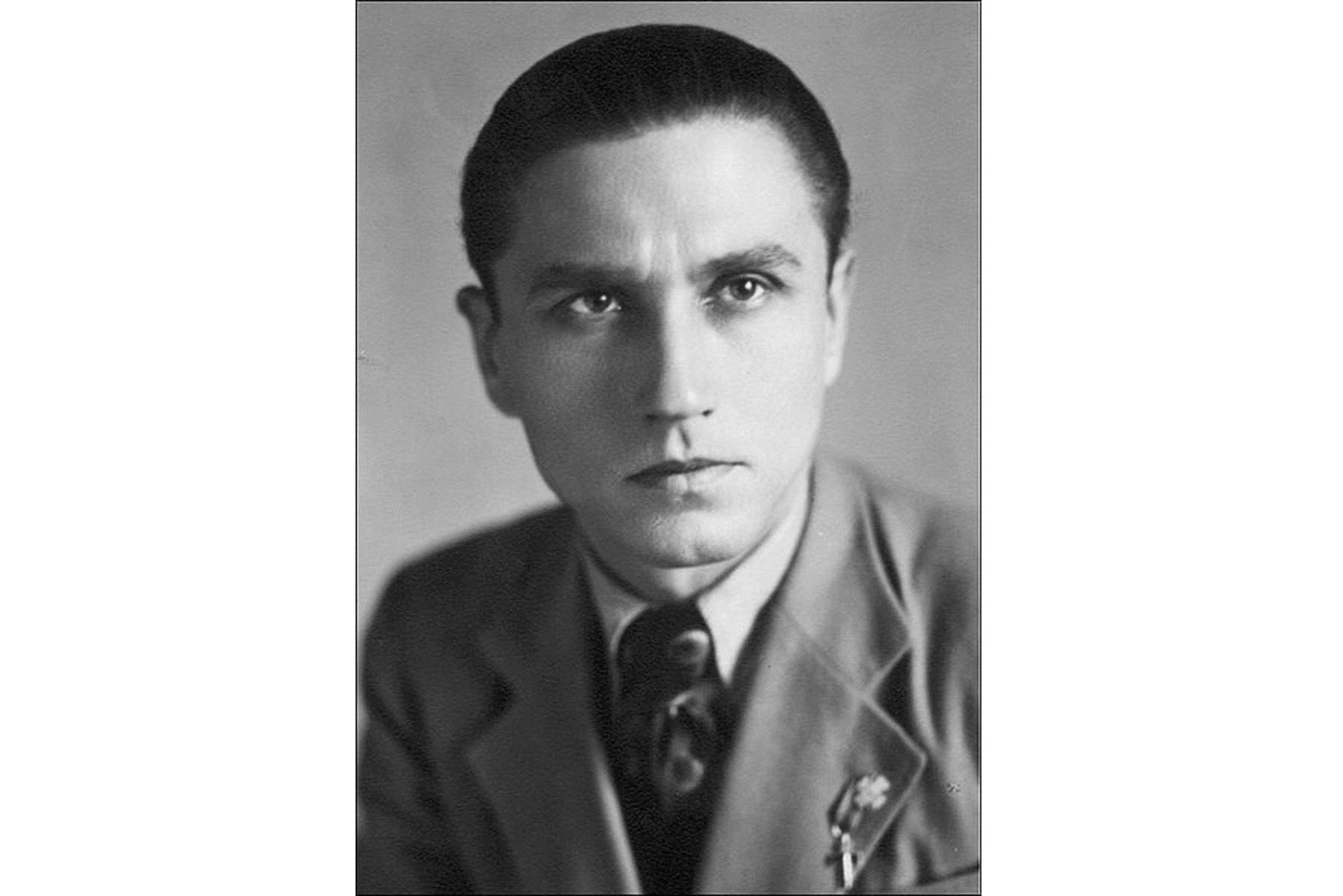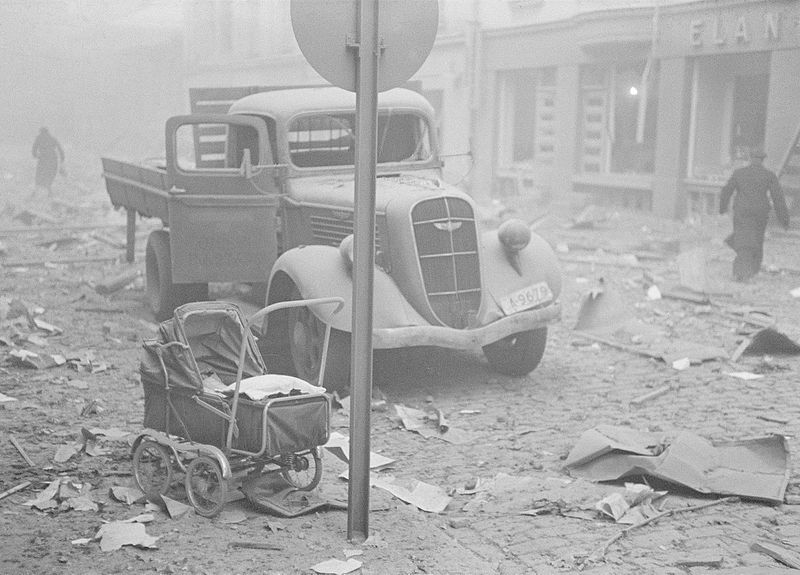You can find the debunking, as well as the original article, below.
Did a Ukrainian unit really come to the help of Finland in the Winter War?
FACT CHECK: FALSE
Homeniuk notes that at the beginning of the Winter War, 41-year-old writer Gorlis-Gorsky arrived in Finland, where he put forward the idea of creating a volunteer legion of Ukrainian POWs, but there simply wasn't enough time or money to implement the idea.
In fact, virtually all active independence groups of Ukrainian emigration groups of that time proposed creating a Ukrainian unit that would fight on the side of the Finns. But the question was whether the Western Allies (Britain and/or France, in whose territory such units would form) would agree and in the ample finances required for the transportation, equipment, and training of such a unit. In any case, these projects had to be put to rest in view of the rapid end of the Winter War.
The Finnish authorities received ideas of forming military units from among the re-agitated Soviet POWs from both the Ukrainian (primarily from the Ukrainian National Republic) and white Russian émigrés. However, they were received with skepticism, for fear of infiltration of Soviet agents, doubts about the combat effectiveness of such units, lack of finances and resources. In the end, the Finns agreed to use the re-agitated prisoners only for propaganda activities against Soviet troops, but not in hostilities.
Other nations proposed their help to the Finns as well; these plans for foreign units, too, were not implemented for the same reasons as in the Ukrainian case. In fact, only a small number of Swedish corps soldiers took part in the fighting at the very end of the war. The participation of Ukrainians under Gorlis-Gorsky or the Russians under Stalin's former secretary Bazhanov in the battles with the Red Army is not confirmed by reliable evidence; such notices are most likely later fabricated legends to raise the profile of those concerned.
The only verified consequences of Gorlis-Gorsky's activities in Finland are, as Homeniuk notes, two novels: "Finland: the land of rocks and icy people" and "Traveling zigzags," published in 1941 and 1946.
The original article:
When Ukrainians came to the aid of Finland against the USSR: recalled and celebrated
By Paul Goble, reprinted from Window on Eurasia
No one who has spent time in Estonia or Finland will have failed to take note of what is one of the most remarkable demonstrations of cooperation of international cooperation between the two, the presence in Finnish military cemeteries of the graves of Estonians who came to fight against Soviet aggression against Finland in 1939-1940.
On the gravestones of these Estonian soldiers are the words “For the independence of Finland and the honor of Estonia,” the kind of thing one might have assumed Moscow would have demanded be removed but that even during the period of “Finlandization,” Helsinki carefully maintained.
Now, two Ukrainian historians, Denys Kovalov and Yuriy Yakuba, have told the much less well-known story of Ukrainians who came to the aid of Finland and efforts to memorialize them (in Ukrainian and in Russian).
They tell the story of Yuriy Gorlis-Gorsky, a Ukrainian ataman who resisted the Bolsheviks in his homeland and then traveled to Helsinki at the time of the Soviet invasion in 1939 and organized a regiment consisting of emigres and Ukrainian soldiers who deserted from Soviet units.
Moscow has thrown the 44th Kyiv Rifleman’s Division against Finland without providing its soldiers with adequate clothing for the extreme cold. Many froze to death. Others were killed in the forests by Finnish units, and some, many of whom were ethnic Ukrainians, crossed over to the Finnish side and joined the former ataman in fighting the Soviets.
Red Army commanders admitted as much in their dispatches to Moscow. One noted that “there is information about the recruitment of Ukrainian Red Army men by White Finnish spies,” and another said that Ukrainian “bourgeois nationalists and the agents of a certain Gorlis-Gorsky” were playing a key role in this.
And Finnish commanders not only recognized the importance of these Ukrainian units but detailed in their despatches “the resoluteness of soldiers from Ukraine taken prisoner,” a quality that set them apart from “the residents of Soviet Russia which were ideologically dominated by Bolshevism and rotting imperial chauvinism.”
Historians confirm this and found that Ukrainians who went over to the Finnish side frequently said they did not understand why Moscow was invading Finland and expressed their desire to fight for Finland as a way of fighting for the ultimate independence of their own country.
The forces of Gorlis-Gorsky which were formally established at the end of January 1940 grew rapidly from 450 officers and men to 850 by the beginning of March of that year. They won victories along the front, they suffered one disappointment. Helsinki didn’t agree to their wearing yellow and blue insignia because that had already been assigned to Swedish units there.
In Soviet times, Moscow largely suppressed discussion of the heroics of Ukrainian fighters in Finland. A rare exception was in the memoirs of Soviet commander Kirill Meretskov in 1968 when he admitted that it had turned out that “the Ukrainians did not want to fight for our Soviet Russia and therefore massively surrendered to the Finns.”
Kovalov and Yakuba point out that the Winter War created “a unique situation,” one in which “Ukrainians were on both sides of the front.” And the willingness of Ukrainian soldiers to leave their Soviet units and fight for the Finns created a serious threat to Moscow, one that they believe played a key role in Stalin’s decision to end the war when he did.
“The Ukrainian factor,” they argue, “created the risk of the complete demoralization of Soviet forces in Finland” because it threatened to spread to other non-Russians in the ranks and thus undermine Moscow’s control of the non-Russian republics. That makes them worthy of being remembered not only by Ukrainians and Finns but by many others.
There have been some attempts at memorializing the Ukrainians who fought for Finland in that Scandinavian country. In 2010, the descendants of some of those who fought there erected a monument in Finland, and it has become the site of annual pilgrimages by those who have not forgotten this international effort.
Related:
- The myth of the "Finalndization" of Ukraine
- Finland -- Sparta of the North
- Putin on Ukraine repeats Molotov on Finland
- Seven reasons why Putin's war in Ukraine is a turning point in Russian and world history
- Ukrainians boycott SVEN (not Finland, not Sweden -- but Russia)
- "Spasibo Putin!" Finland thanks the Russian President for cheap cheese
- Top-6 Soviet World War II myths used by Russia today
- Moscow's actions producing exactly the opposite of its proclaimed goals, Eidman says





